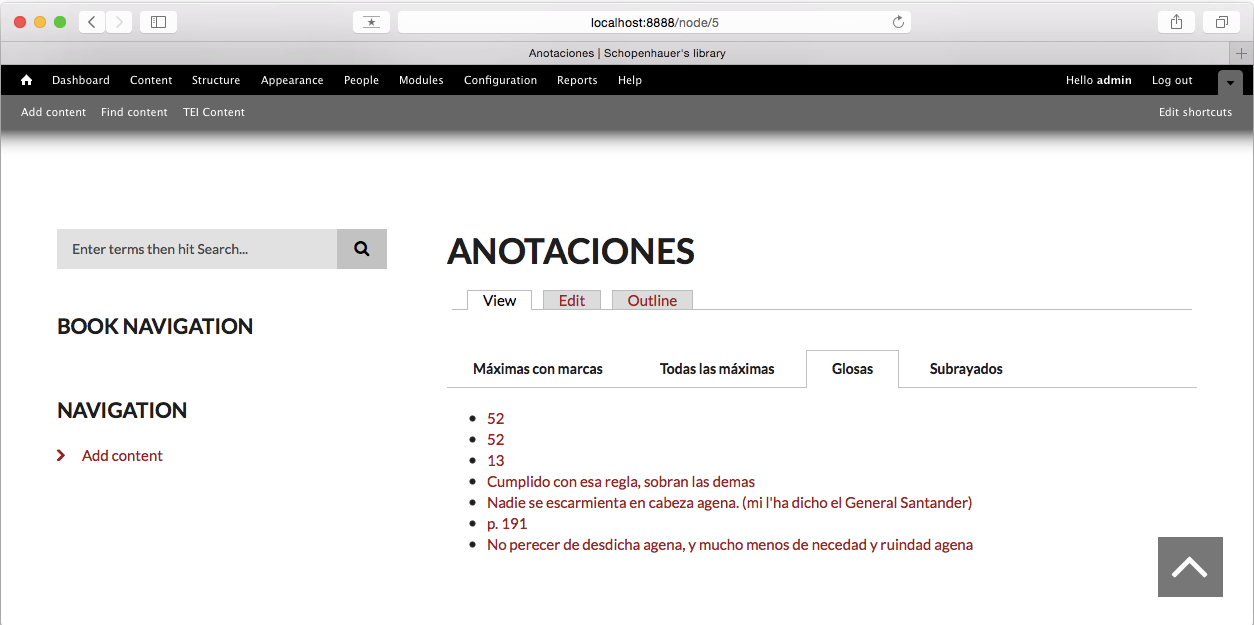Rękopiśmienne adnotacje Arthura Schopenhauera: ich edycja oraz cyfrowe kodowanie
☰
spis treści
- Start & spis↡(1)
- Bibliotheka Schopenhauera↡(4)
- Adnotacje odautorskie↡(8)
- Klasyfikacja↡(2)
- Interpretacja↡(7)
- Model oznakowania↡(5)
- Publikacja cyfrowa↡(5)
- Impressum

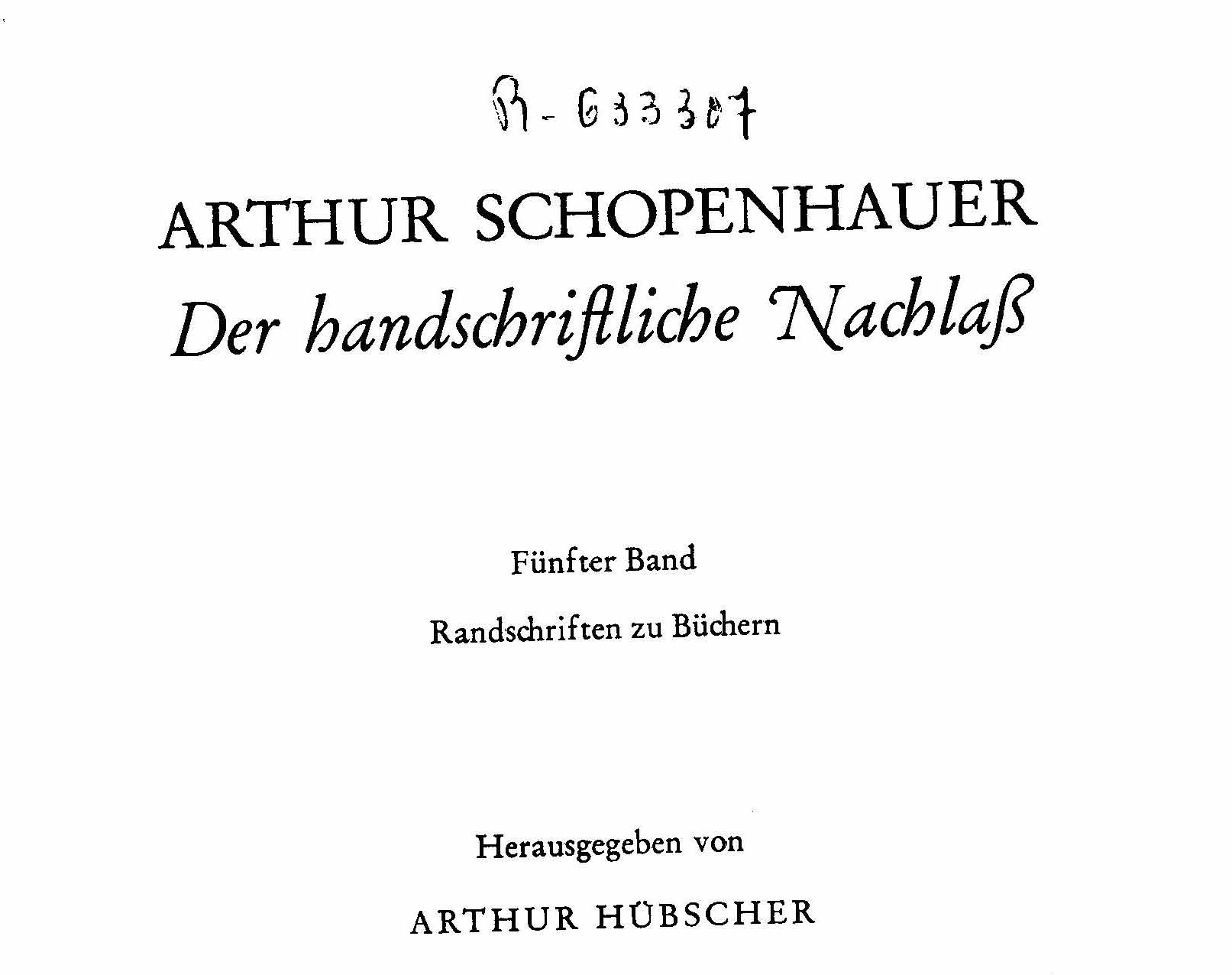
- 3000 książki (po śmierci)
- żaden bibliofil
- literatura niemiecka: 135 poz.
- francuska: 101 poz.
- angielska: 73 poz.
- włoska: 66 poz.
- hiszpańska: 38 poz.
Czytanie dzieła literackiego
- Bez wstępów
- Własna adnotacja
- Bibliotheka jako notatnik
"Ein echtes Kunstwerk habe nicht die Präambel einer historische Einführung nötig" Schopenhauer in: Hübscher, 1968: XVIII
"Man kann es von Bibliotheken leihen; aber recht notwendiger Bücher muß der Gelehrte eigens besitzen. Ich nun gar, da ich von Collektaneen und Auszügen nicht viel halte, sondern in den Büchern selbst meine Bemerkungen oder den Widerspruch anmerke, oder was mir am wichtigsten ist” Ludwig Tieck an Hallwachs 14.08.1836
“Die ganze Weltliteratur weist keinen Schrifsteller von ähnlicher Bedeutung auf, der seine gesamte umfangreiche Bibliothek so wie Schopenhauer zu einem Archiv eigener Bekenntnisse ausgestaltet hätte" Hübscher, 1968: XII
marginesy czyste
Marginalia odautorski
- ✗ anonimowe adnotacje: scholia lub klasyczne glosy filologiczne.
- ✗ dopisek w publikacjach podlegających cenzurze.
- ✗ adnotacje ds. wystawień teatralnych (marginalia scaenica).
- ✗ oznaczenia pisarza (edytor swojego własnego dzieła).
- ✗ korekta autorski
konsekwencje interpretacyjne
- literacki u-topos
- uprzedzenia: krótkotrwałe, wstępne, nieskończone, przypadkowe
- intymny proces pisania vs. wspólna lektura
- bezpośrednie ślady recepcji (tekstu i autora)
"If you mean to know yourself, interline such of these aphorisms as affected you agreeably in reading, and set a mark to such as left a sense of uneasiness with you; and then shew your copy to whom you please" Lavater, Aphorisms on men, in: Jackson, Marginalia: Readers writing in Books, New Haven, Yale University Press, 2001, p. 156.
Podział typologiczny
marginalists vs. extractors
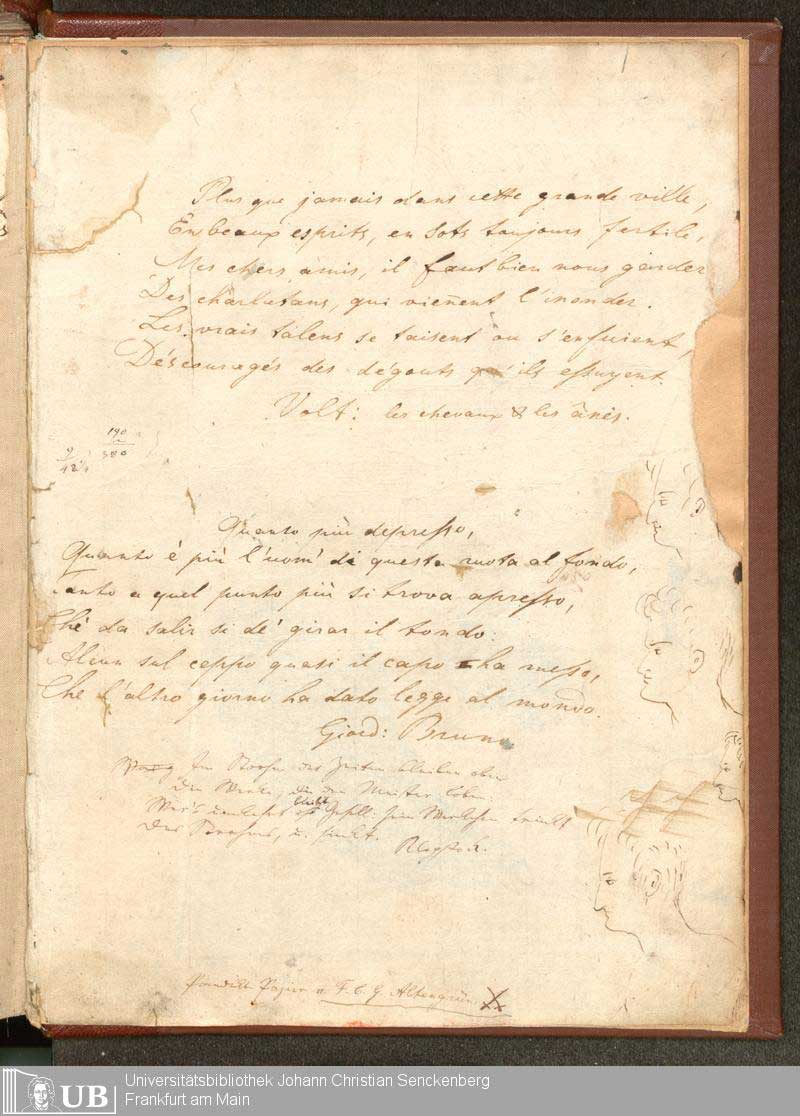
"This title also alludes to an opposition between two categories of note-taking writers: the “marginalists” and the “extractors”. The extractors [...] cut up the text they read and store it, in what is supposed to be a concentrated and quintessential form but is de facto a mutilated state [...] The other class of writers, the marginalists [...] do not dismember the text they read, they preserve its contextual integrity, but they brand it with idiosyncratic marks, adorn it with commentaries of all kinds, embrace it with their own writing" Ferrer, D., "Towards a Marginalist Economy of Textual Genesis" in: Variants 2/3: Reading notes. Amsterdam / New York: Editions Rodopi, 2004, 7-8
notatki vs. znaki
decyzja edytorska
"Whereas textual criticism and scholarly editing used to focus on the edited text as the edition's main goal, recent tendencies seem to be less exclusively teleological" W. van Mierlo; D. van Hulle (ed.), Reading Notes (Variants 2/3), Amsterdam-New York, Rodopi, 2004, pp. 5-6.
ABO: A digital archive of early modern annotated books
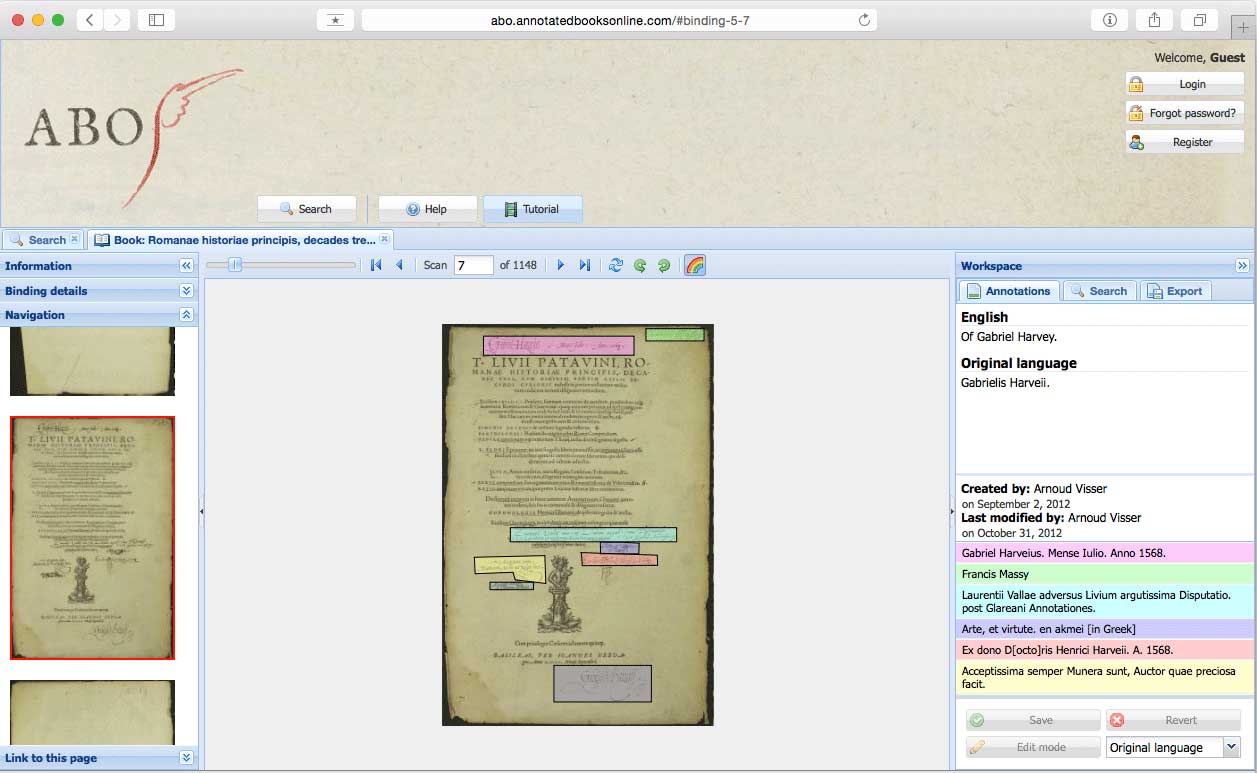
Melville's Marginalia Online

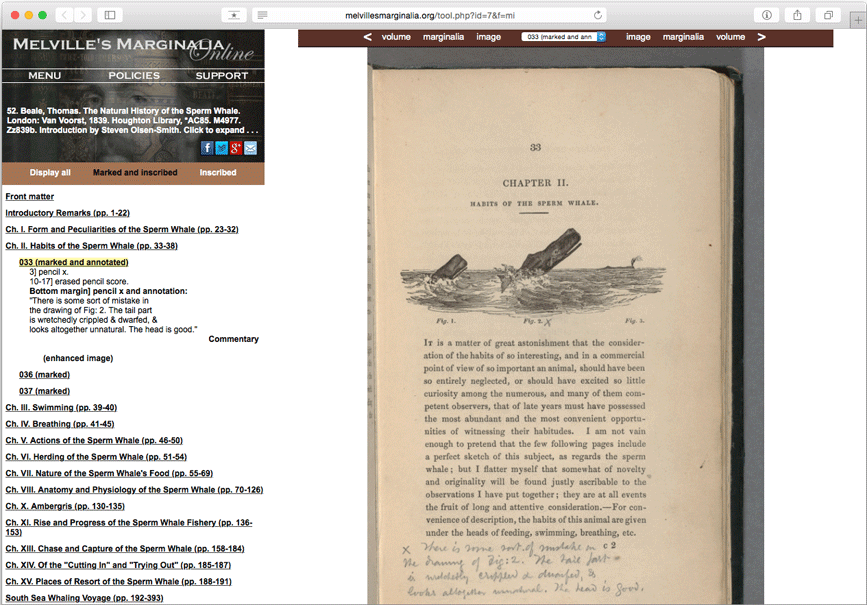
klasyfikacja
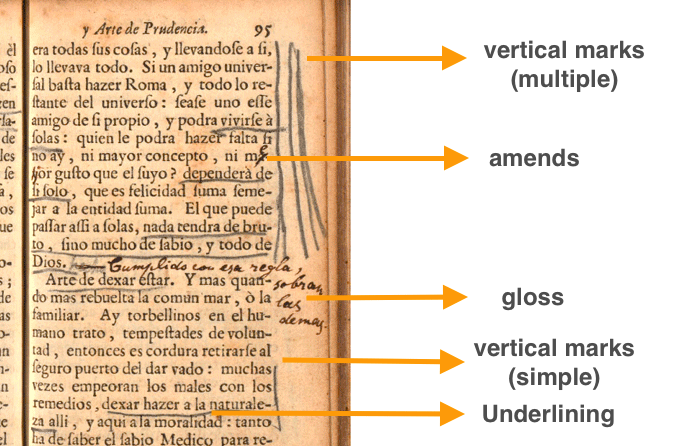
Atrybucja
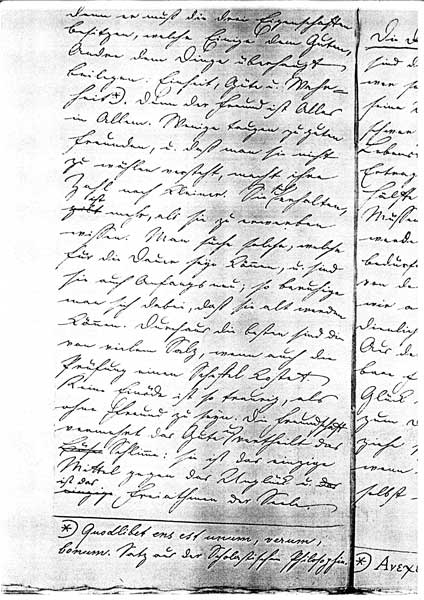

Interpretacja

Formy czytania:
· Studiowanie
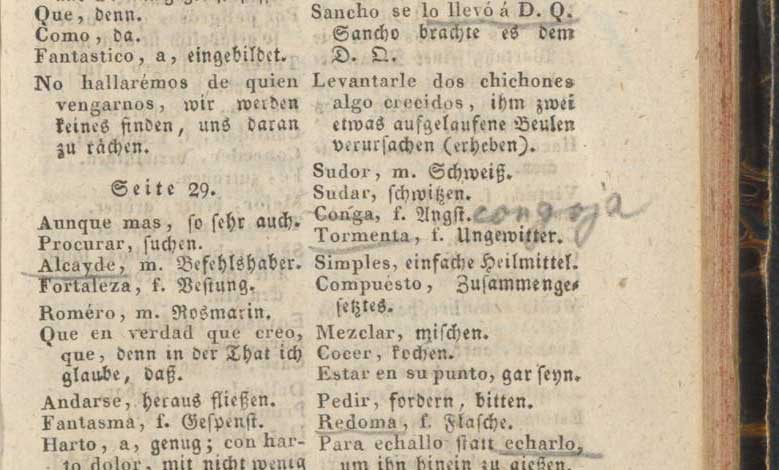
· indeksowanie
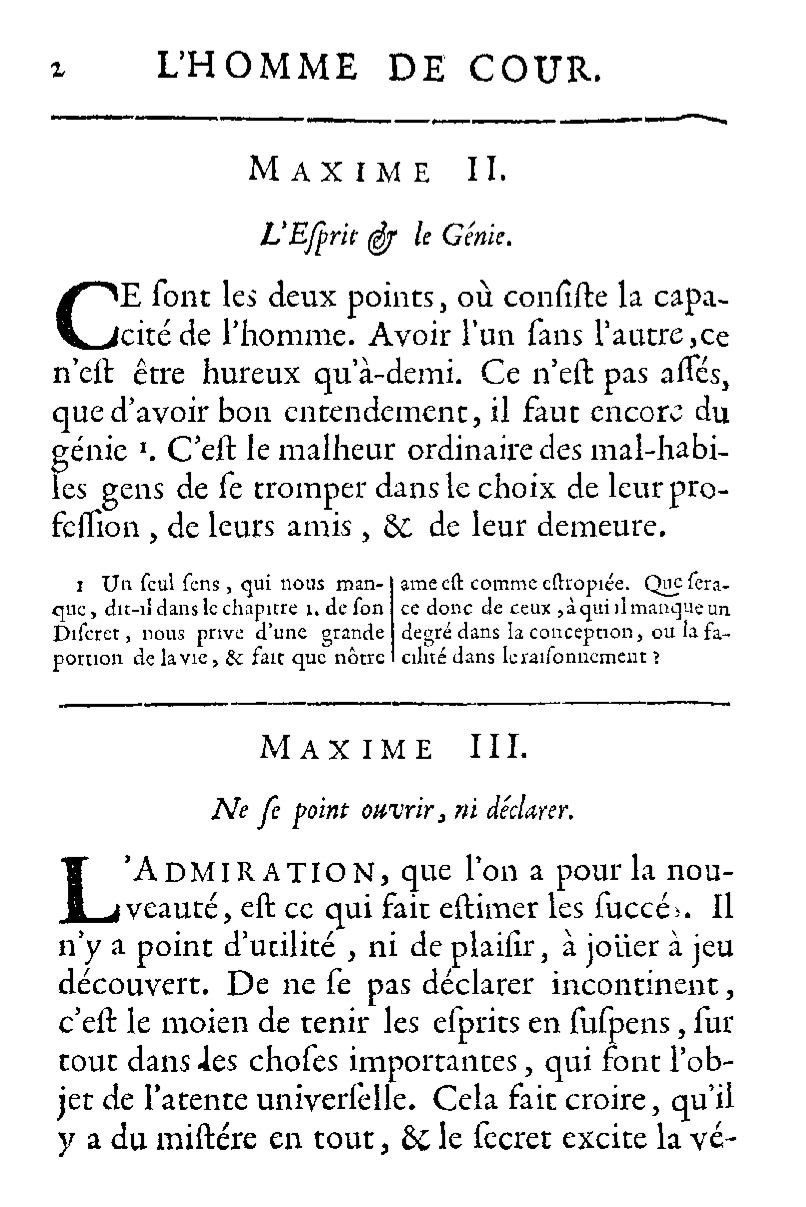
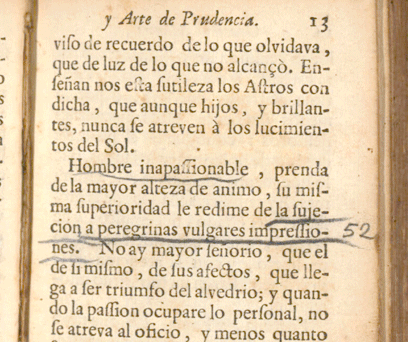
· identyfikacja
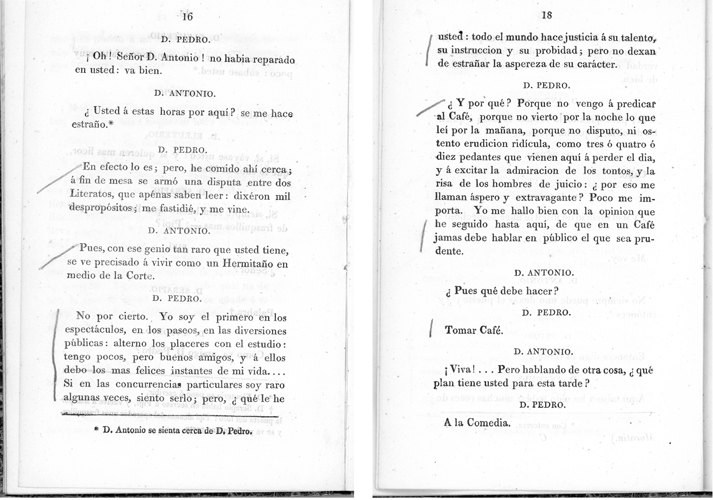
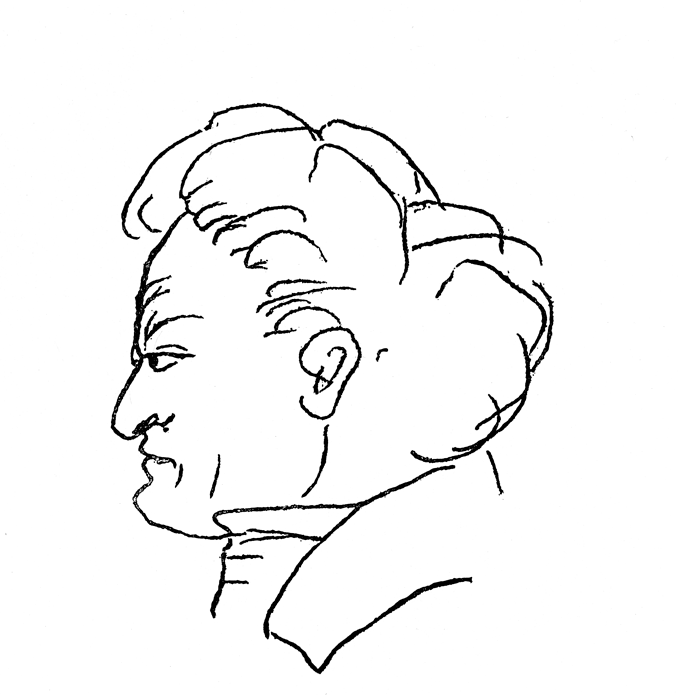
"wir sehen diese Zeichnungen stets nur in solchen Bücher, die ihm zu tieferem Nachdenken anregten; je länger dieser Zustand bei ihm andauerte, desto mehr häuften sich diese Skizzen" Hübscher [1968: XIII]

Cyfrowy model oznakowania
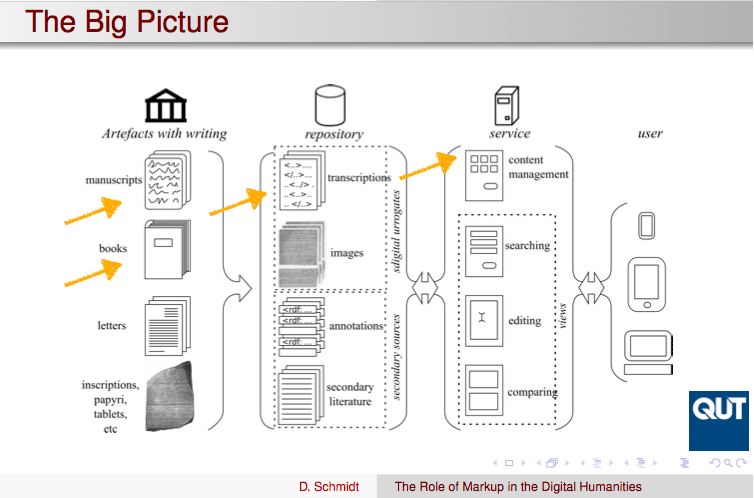

- XML: Język znaczników do opisu struktury danych
- TEI: Język znaczników do opisu struktury tekstów
- Międzynarodowy standard
- Wyłuskiwanie
- Przekształcanie
- Sformatowania
- Sortowania
- ...
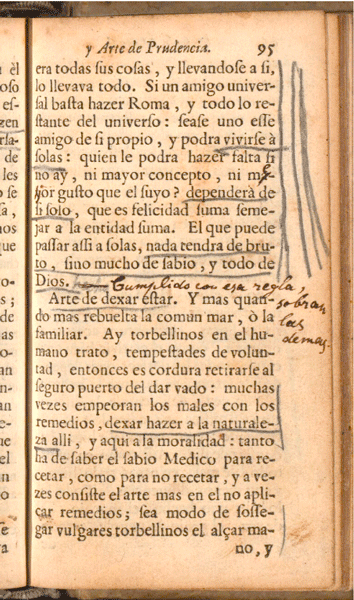
1.<lb type="hyphenInWord" break="no"/>
<pb n="95"/>era todas sus cosas, y llevándose a sí<lb/> lo
2.<add type="Randstreichung" subtype="triple"
hand="#Schop1">
3. y podrá <add type="Unterstreichung" hand="#Schop1"
>vivirse a<lb/> solas.</add>
4.<subst hand="#Schop2"><del>a<lb type="hyphenInWord"
break="no"/>y</del><add>ej</add></subst>
5.<add type="gloss" hand="#Schop2" xml:lang="es"
place="inline">Cumplido con esa regla,
sobran las demas</add>
6.<seg type="maxim" xml:id="138">
<num>138</num>.
<add hand="#Schop1" type="Unterstreichung">
Arte de dexar estar</add>.</seg>
7.<note resp="editor">przypisy editora do
konkretnego elementu</note>
Drupal: system zarządzania treścią

TEICHI
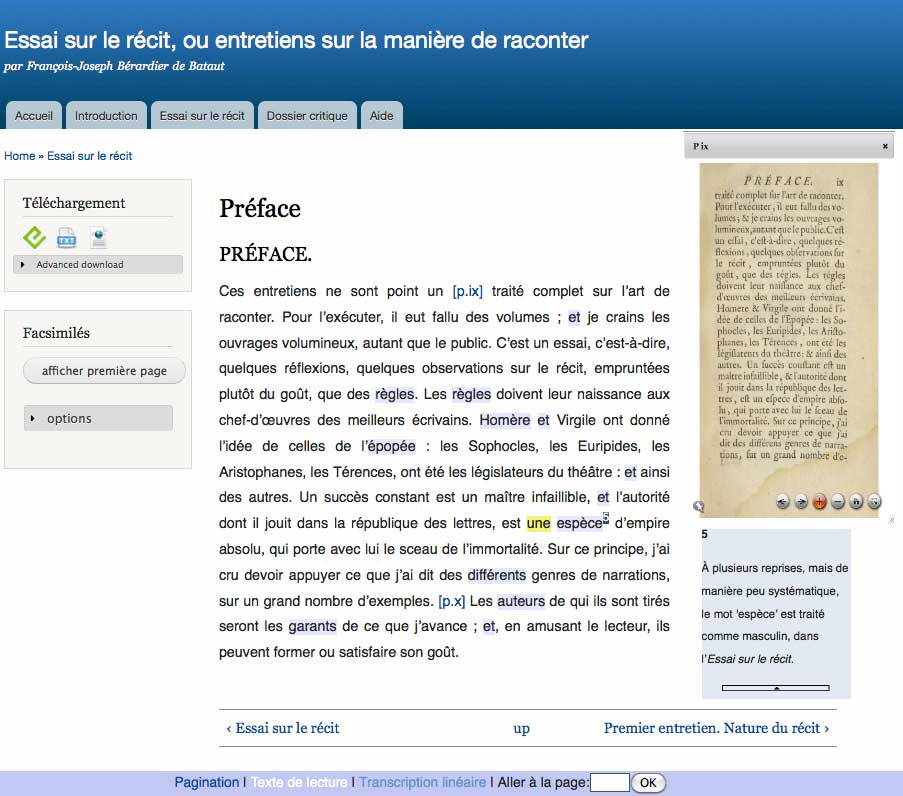
- "The TEICHI Framework is a modular tool for displaying documents encoded according to the guidelines of the Text Encoding Initiative as pages in a Drupal-based website via XSLT and CSS."
- "Limited to a subset of TEI Lite"
- "Core elements: displaying a linear transcription of the source text."
- <choice> , <note>
Własna implementacja: css
/* marks visualization */ .marginalia-triple {
display: block;
padding-left: 12px;
border-left: 9px double red;
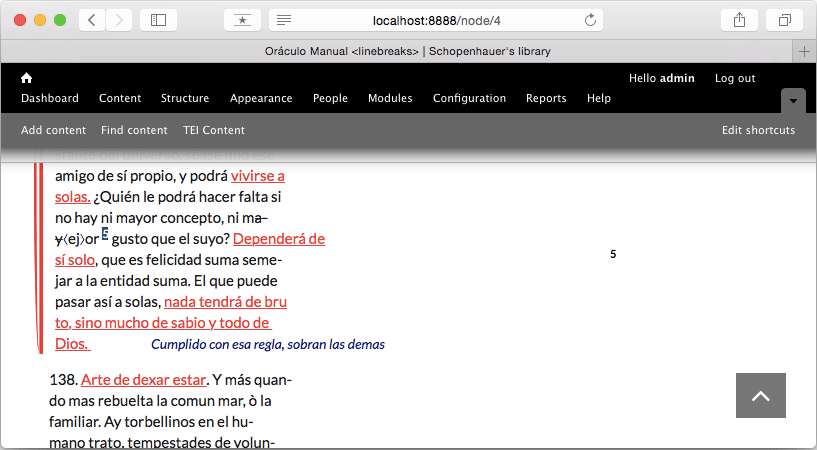
Własna implementacja: xslt
<xsl:for-each select="biblFull/titleStmt/author/persName">
<xsl:apply-templates select="surname"/> <xsl:text>, </xsl:text>
<xsl:apply-templates select="forename"/>
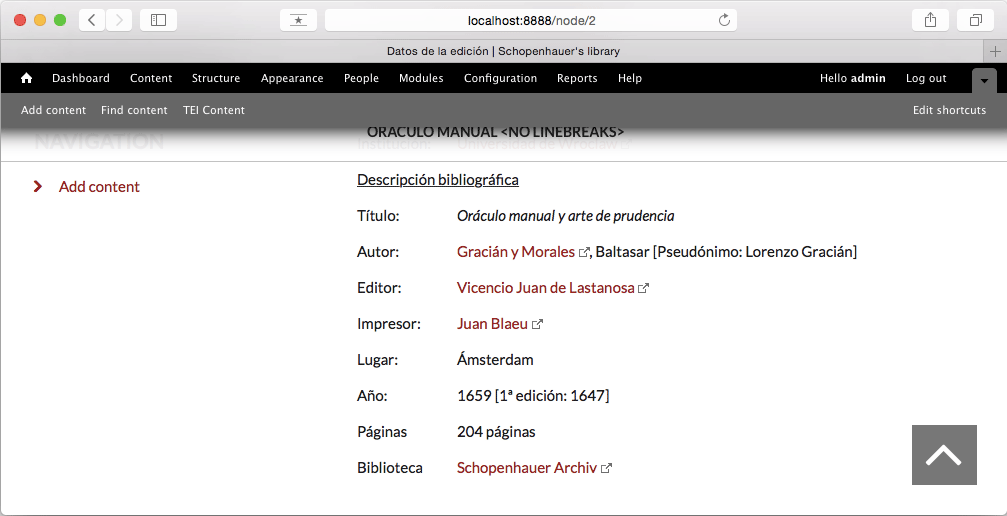
Własna implementacja (indeks): xslt
<xsl:for-each select="//seg[@type = 'maxim' and
ancestor::p//add[@type = 'Unterstreichung' or @type = 'Randstreichung']]">
